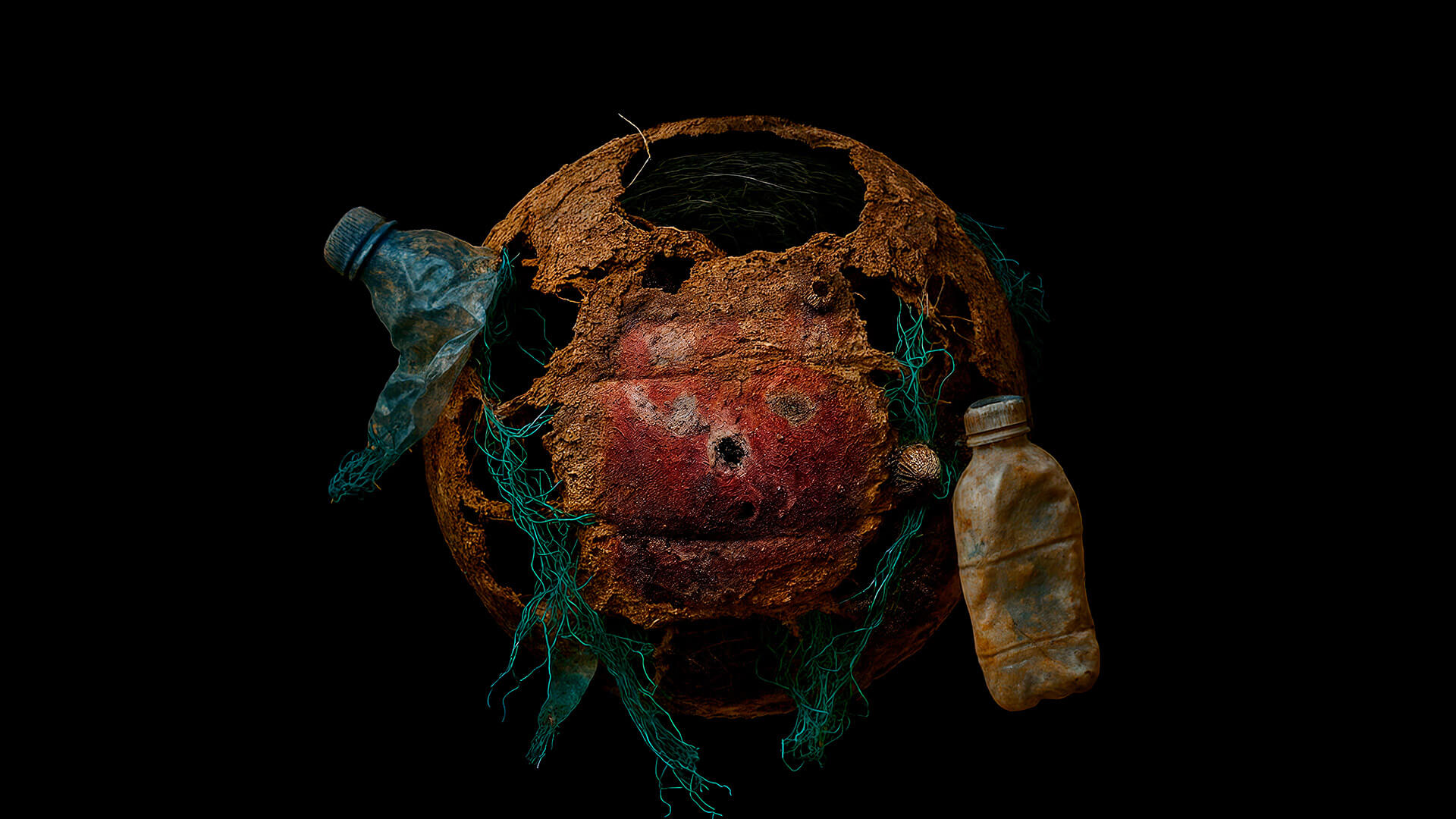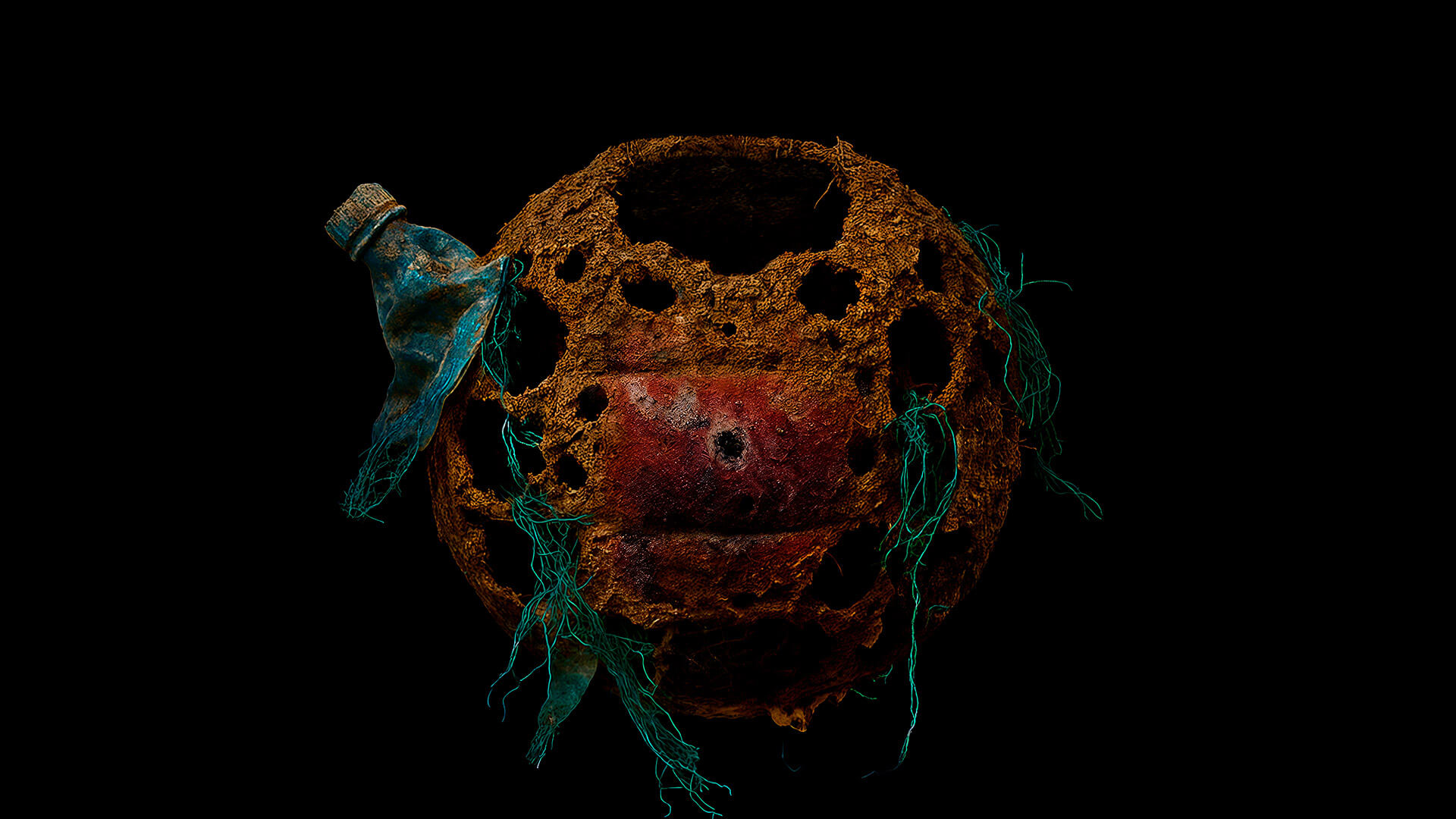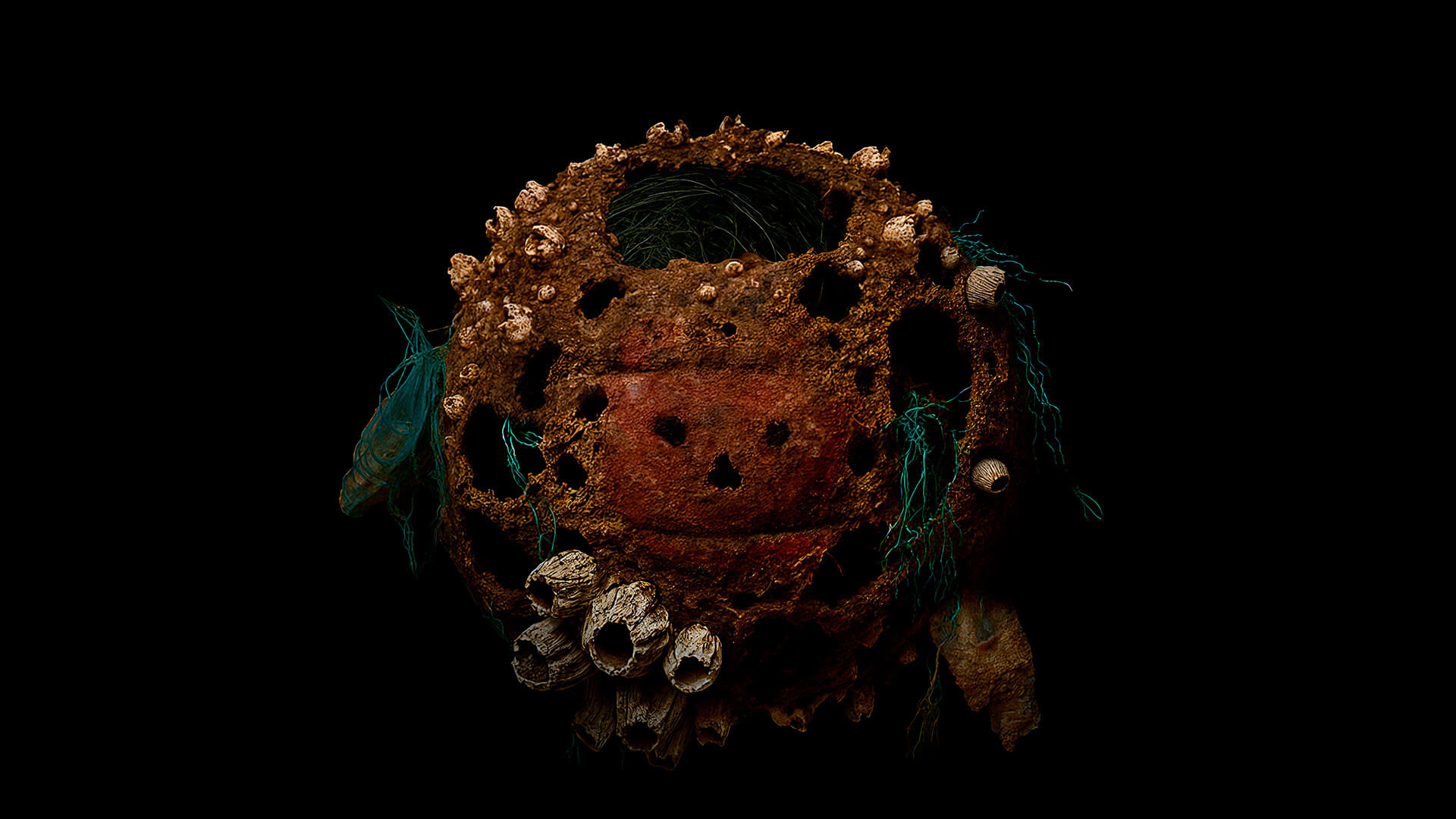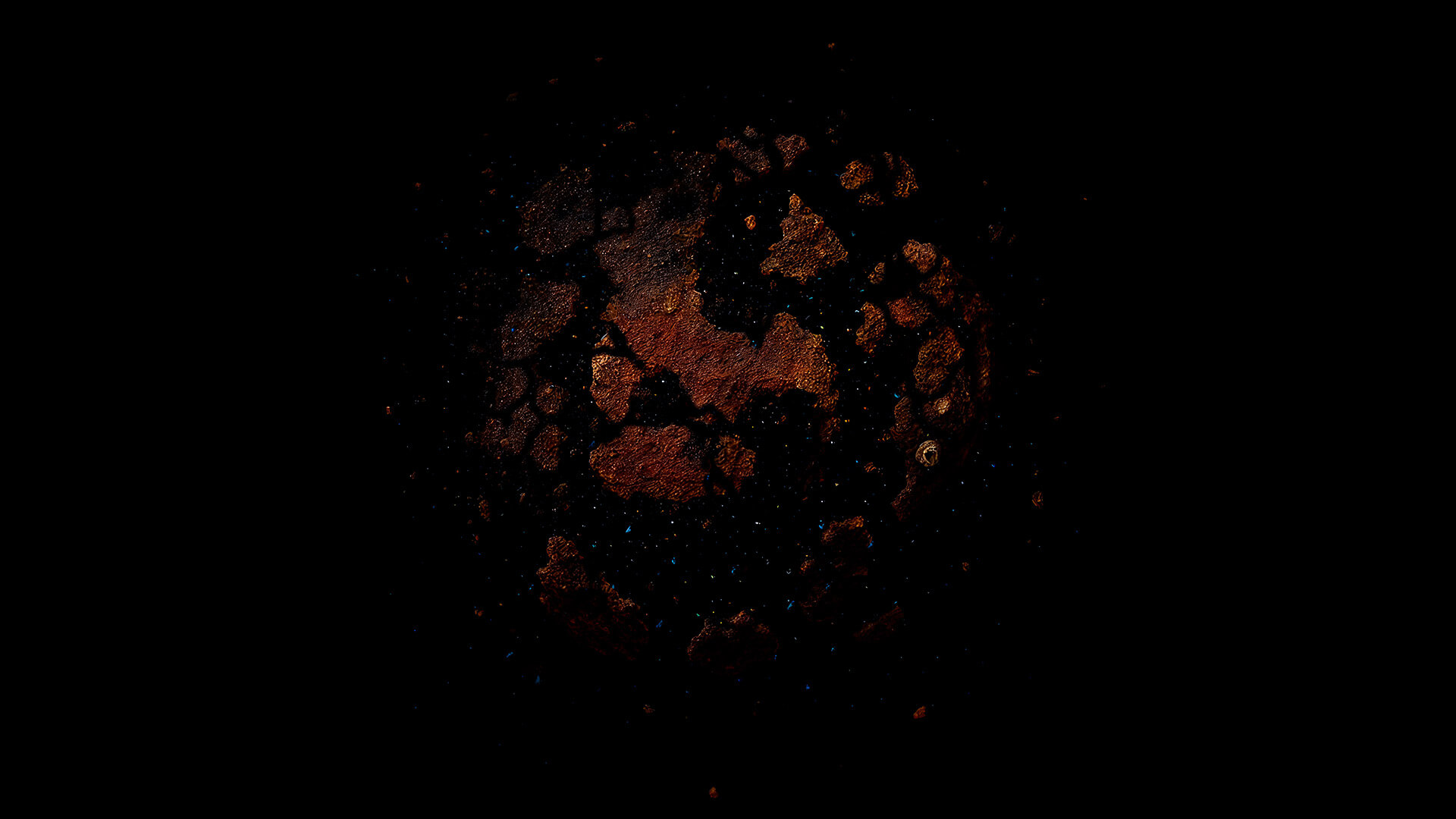SOME JOURNEYS DESERVE
THE BIG SCREEN
FOR THE FULL EXPERIENCE,
PLEASE VISIT ON A DESKTOP.
ODYSSEYOFWILSON.COM
SOME JOURNEYS DESERVE
THE BIG SCREEN
FOR THE FULL EXPERIENCE,
PLEASE VISIT ON A DESKTOP.
ODYSSEYOFWILSON.COM
25 YEARS AGO, HE WAS CAST AWAY.
BUT IT'LL TAKE CENTURIES FOR HIM TO FADE AWAY.




450YEARSATSEA


THIS IS THE STORY OF WILSONAND OF OUR OCEANS.

















































CLICK AND
DRAG TO EXPLORE
a project
for the future
of our oceans
This project was created by UNESCO and Onda Azul
Institute in support of the 2025 United Nations Ocean
Conference, taking place in Nice from June 9 to 13.
Co-hosted by France and Costa Rica, the conference brings
together heads of state and policy-makers to accelerate
action for ocean conservation and advance the
implementation of Sustainable Development Goal 14.
The project was made possible with the backing of Vivo,
recognized as the most sustainable company in Brazil. It
reflects the brand's long-standing commitment to the UN's
2030 Agenda, having integrated the Sustainable
Development Goals as a core pillar of its business strategy
since 2015 - leveraging technology and innovation to
deliver large-scale environmental impact.




the science
behind the story
This storytelling project was created to raise awareness
about plastic pollution and the long-term impact of human
activity on our oceans.
While some narrative elements are speculative, it is
grounded in real data, scientific research, and
environmental projections from globally recognized
institutions. For further reading, explore the sources below.
Article: Fukushima Daiichi Accident
Article: AI, Information and Technology Help Curb Illegal Fishing in the Gulf of California
Forbes: How AI Anchors The Future Of Fishing & Charts The Course To Sustainability
Research: Harnessing AI to map global fishing vessel activity
Article: Advancing artificial intelligence in fisheries requires novel cross-sector collaborations
Research: The use of experimentally evolved coral photosymbionts for reef restoration
Copernicus: January 2025 was the warmest on record globally, despite an emerging La Niña
Research: Sea-level rise in Venice - historic and future trends
Transcript: Greta Thunberg's Speech At The U.N. Climate Action Summit
Article: Above-average temperatures over most areas; lowest global and Arctic sea ice extent
Global Seasonal Climate Update for March-April-May 2025
Article: Climate change set to upend global fishery agreements, study warns
Article: What would happen if the Atlantic Meridional Overturning Circulation (AMOC) collapses?
Article: Climate change threatens the North Atlantic’s currents, ecosystems and stability
IPCC's Sixth Assessment Report, 2023
NASA Climate – Sea level, temperature, and ocean changes
Research: Major impacts of climate change on deep-sea benthic ecosystems
Research: Risk maps for Antarctic krill under projected Southern Ocean acidification
World Metereological Organization: January 2025 sees record global temperatures despite La Niña
The Guardian: Gulf Stream could collapse as early as 2025, study suggests
BerkeleyEarth: February 2025 Temperature Update
Research: Climate Change, Fish Production, and Maritime Piracy
Article: Noisy water? Oceans will be 5 times louder by 2100, study explains
Research: Keeping the ‘Great’ in the Great Barrier Reef
Great Barrier Reef Marine Park – Conservation initiatives
Article: Lessons from the Great Barrier Reef
Article: NOAA confirms 4th global coral bleaching event
The Guardian: Great Barrier Reef hit by its most widespread coral bleaching, study finds
UNEP: The world’s corals are bleaching. Here’s why and what it means for the ocean’s future.
Article: How does 2023-24 global coral bleaching compare to past events?
WWF: 5th Mass Bleaching Event on the Great Barrier Reef in 8 Years
Article: Scientists successfully develop ‘heat resistant’ coral to fight bleaching
Yale E360 – As Ocean Waters Warm, a Race to Breed Heat-Resistant Coral
Article: Four decades of coral research lead to an exciting discovery for tropical pacific corals
Article: As reef bleaching intensifies, lab-grown corals could help beat the heat
Article: Cyclone Heta wreaks havoc on Niue Island
NASA Earth Observatory – Tropical Cyclone Heta
Article: Saving an island from the worst oil spill in the Philippines - The case of Guimaras
NASA Earth Observatory – Super Typhoon Melor
NASA Earth Observatory: Tsunami Strikes Java
NASA Earth Observatory – Oil Spill near Guimaras Island
Article: Deepwater Horizon oil spill
Article: Japan earthquake and tsunami of 2011
Article: Effects of Japanese oil spill still felt in Mauritius mangroves today
NASA-DOD Study: Saltwater to Widely Taint Coastal Groundwater by 2100
Research: Typhoon-induced megarips as triggers of turbidity currents offshore tropical river deltas
Research: Continued Atlantic overturning circulation even under climate extremes
Research: Warning of a forthcoming collapse of the Atlantic meridional overturning circulation
Article: Is the Atlantic Overturning Circulation Approaching a Tipping Point?
Research: Seasonal increase of methane emissions linked to warming in Siberian tundra
Article: What Is The Saemangeum Seawall?
Research: Coastal environmental changes after the Saemangeum seawall construction
Article: Last Murmurations of a Destroyed Wetland
Article: Fukushima Radiation in U.S. West Coast Tuna
Research: Selective breeding enhances coral heat tolerance to marine heatwaves
Research: Co-occurrence of beaked whale strandings and naval sonar in the Mariana Islands
Case Study: Ecological corridors in ecological networks
Cambridge: Effects of the Saemangeum Reclamation Project on migratory shorebird staging
Article: Where Are the Pacific Garbage Patches?
Article: Green Sea Turtles Are Bouncing Back Around U.S. Pacific Islands
IUCN: A third of sharks, rays, and chimaeras are threatened with extinction
Article: How are fish stocks changing across the world? How much is overfished?
Article: Global Extinction Risk for Sharks and Rays Is High, United States may Provide Haven
Article: One in seven deepwater sharks and rays at risk of extinction, new study finds
Article: The Algorithmic Ocean: How AI Is Revolutionizing Marine Conservation
PBS: Molecular biologists attempt to bring back species to restore the health of the planet
Article: How Close Are We to Resurrecting Extinct Species?
World Economic Forum: Three reasons we should resurrect extinct species
Article: Sea Star Wasting Disease
The Guardian: Starfish suffer mysterious and gruesome demise along west coast
Research: Embracing conservation success of recovering humpback whale populations
Hawaiian Islands Humpback Whale National Marine Sanctuary 2010 Condition Report
Report: Sustained climate warming drives declining marine biological productivity
Research: Ecosystem consequences of bird declines
Article: What Animals Will Be Extinct By 2100?
Research: Ecosystem consequences of bird declines
Article: The Sound of Sonar and the Fury about Whale Strandings
Article: Saving DNA - The Frozen Ark Project
Research: Marine debris ingestion by Chelonia mydas on the Brazilian coast
Research: On North Pacific circulation and associated marine debris concentration
Article: Great Pacific Garbage Patch now 3 times size of France
Plastic waste inputs from land into the ocean
Research: Evidence that the Great Pacific Garbage Patch is rapidly accumulating plastic
Article: Garbage Patches - How Gyres Take Our Trash Out to Sea
Research: Plastic pollution in the marine environment
Research: Plastic pollution in the South Pacific subtropical gyre
Research: Sources, sinks and transformations of plastics in our oceans
Article: Plastic pollution and potential solutions
NASA EarthData Article: Tracking Ocean Plastic From Space
Our World in Data - Global data on plastic pollution
National Geographic: Eight Million Tons of Plastic Dumped in Ocean Every Year
Center for Biological Diversity - Ocean plastics campaign
Article: Microplastics: Small Particles with a Global Reach
PBS: The world is producing 57 million tons of plastic pollution per year
Article: The Story of Plastic Pollution - From the Distant Ocean Gyres to the Global Policy Stage
Article: What and Where Are Garbage Patches?
NOAA: A Guide to Plastic in the Ocean
National Geographic: The Great Pacific Garbage Patch Isn’t What You Think it Is
UNEP: Single-use plastics - A roadmap for sustainability
Article: The Great Pacific Garbage Patch
Research: Tracking Marine Litter With a Global Ocean Model - Where Does It Go?
Ocean Conservancy – International coastal cleanup report
Report: 2020 Foreign Marine Debris Event at the Bering Strait

the ocean can't
speak for itself.
but you can.
This project is not just a fictional story - it's a reminder that
what we throw away never really goes away. And if Wilson
is still out there, it's because the plastic problem still is too.
By sharing it, you help amplify the message behind the 2025
UN Ocean Conference and support UNESCO's mission to
connect knowledge, policy, and action for a healthier planet.
